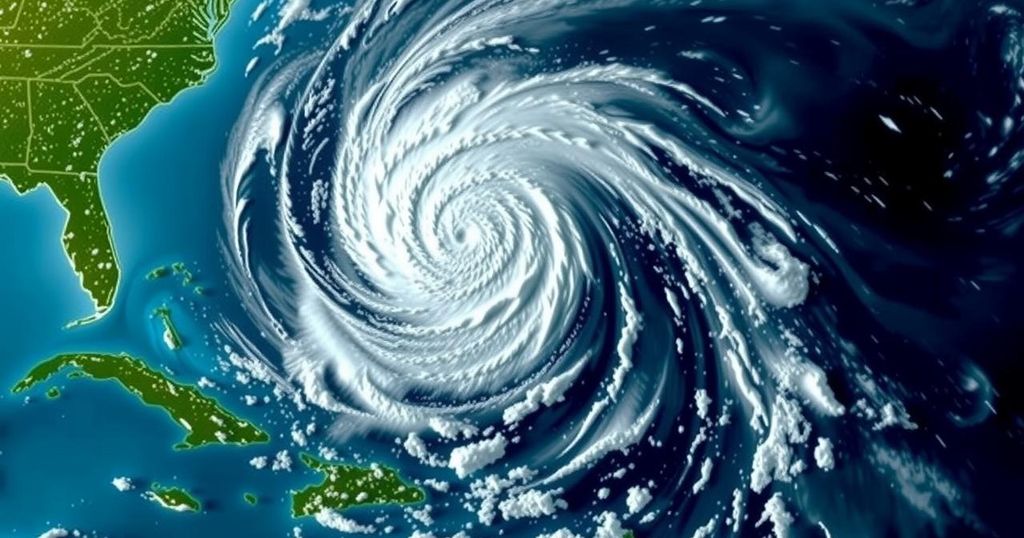2024 Atlantic Hurricane Season Records: Hurricane Helene’s Devastation

The 2024 Atlantic hurricane season set records with 18 named storms, including 11 hurricanes and five major hurricanes, highlighted by Hurricane Helene, the deadliest storm in the U.S. since Katrina, resulting in over 150 deaths. Improved forecasting technologies have aided in preparedness, underscoring the need for vigilance as storm activity is expected to rise.
The 2024 Atlantic hurricane season concluded on November 30, featuring unprecedented storm activity and severe consequences. The season witnessed 18 named storms, comprising 11 hurricanes and five major hurricanes. According to the National Oceanic and Atmospheric Administration (NOAA), Hurricane Helene emerged as the deadliest storm in the United States since Hurricane Katrina, striking the Gulf Coast as a Category 4 storm on September 26, resulting in over 150 fatalities and extensive flooding. Additionally, Hurricane Milton, a Category 3 storm that made landfall on October 9 near Siesta Key, Florida, contributed to significant devastation, spawning 46 tornadoes and with rainfall reaching over 15 inches in some regions. NOAA attributes the improved tracking and forecasting of these storms to advancements in technology, highlighting the efficacy of newer tracking tools. This past season notably set a record for hurricane activity with twelve storms forming before the customary peak period in September, and increased hurricane developments occurring after September 25. Experts have connected this uptick in storms to elevated winds over West Africa, which previously quelled storm activity. In light of these events, officials emphasize the importance of community preparedness as hurricane activity is anticipated to rise, and NOAA is committed to enhancing forecasting capabilities.
The Atlantic hurricane season is an annually observed period that generally spans from June 1 to November 30, during which tropical storms and hurricanes develop in the Atlantic Ocean. The severity and frequency of these storms are crucial for coastal communities and emergency management agencies. The 2024 season was particularly impactful in that it not only featured a record number of named storms but also emphasized advancements in storm forecasting technology, which have allowed meteorologists to better manage public safety. The consequences of such storms can be devastating, reflecting the necessity for ongoing research and preparedness initiatives, especially in regions frequently affected by hurricanes.
In conclusion, the 2024 Atlantic hurricane season has set notable benchmarks, particularly with the emergence of Hurricane Helene as the deadliest storm since Hurricane Katrina. The season’s record of 18 named storms, along with significant advancements in forecasting technology, underscores the growing challenges posed by increasing hurricane activity. As communities brace for future storms, the importance of preparedness, informed by continuous research and improvements in meteorological tools, cannot be understated.
Original Source: countryherald.com






